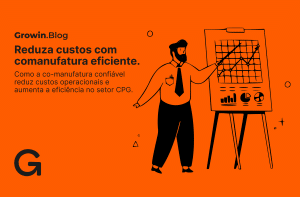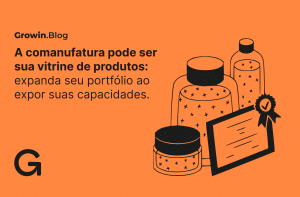The beverage industry has been adopting sustainability practices in a significant transformation in response to growing environmental concerns and consumer demand for sustainable products. From production to packaging and logistics, beverage companies are increasingly embracing eco-friendly practices to minimize their environmental footprint and contribute to a more sustainable future. In this article, we delve into the innovative sustainability practices that beverage companies are adopting across various stages of production.
1. Sustainable Sourcing of Ingredients
One of the foundational steps toward sustainability in beverage production is the sourcing of ingredients. Beverage companies are increasingly prioritizing partnerships with suppliers who adhere to environmentally friendly practices. This includes sourcing ingredients locally to reduce carbon emissions associated with transportation, as well as choosing suppliers who employ sustainable agricultural practices such as organic farming and fair trade initiatives.
Furthermore, some beverage companies are investing in initiatives aimed at supporting farmers in adopting sustainable agricultural practices, thereby promoting biodiversity, conserving water resources, and reducing the use of harmful chemicals.
PepsiCo has announced plans to reduce its virgin plastic usage by 35% by 2025, focusing on initiatives like Pep+ that aim for positive agriculture, value chain, and choices. The brand is also committed to net-zero emissions by 2040 and becoming net water positive by 2030.
Source
2. Efficient Water Management
Water is a precious resource, particularly in beverage production where it is a primary ingredient. Sustainable beverage companies are implementing innovative water management strategies to minimize water usage and optimize efficiency throughout the production process.
Technological advancements such as water recycling and reuse systems are increasingly being adopted to reduce water consumption and minimize wastewater discharge. Additionally, companies are investing in water conservation practices within their facilities and engaging in community water stewardship initiatives to replenish water sources in regions facing water scarcity.
In 2021, The Coca‑Cola Company announced a holistic strategy to achieve water security for its business, communities and nature everywhere the company operates, sources agricultural ingredients for its beverages and touches people’s lives by 2030.
3. Energy Efficiency and Renewable Energy Sources
Reducing energy consumption and transitioning to renewable energy sources are key components of sustainability in beverage production. Beverage companies are implementing energy-efficient technologies and processes, such as optimizing production line layouts, upgrading equipment with energy-saving features, and implementing automated systems to monitor and control energy usage.
Moreover, many beverage companies are investing in renewable energy sources such as solar, wind, and hydropower to power their operations. By generating clean energy on-site or purchasing renewable energy credits, these companies are reducing their reliance on fossil fuels and mitigating their carbon footprint.
Nestle Purina has upgraded to LED lighting technology to manage energy use better, with the goal of reducing greenhouse gas emissions. In 2021, Nestle Purina reduced its greenhouse gas emissions by 4.4 million tons.
Source
4. Eco-Friendly Packaging Solutions
Packaging plays a significant role in the environmental impact of beverage products. To address this challenge, beverage companies are innovating with eco-friendly packaging solutions aimed at reducing waste and minimizing environmental harm.
Keurig Dr Pepper pledges to reduce its virgin plastic usage by 25% by 2025 and has already achieved its goal of producing 100% recyclable Keurig K-Cup pods .
Source
Aquafina water will switch to aluminum can packaging in U.S. food service outlets, and Bubly sparkling water will no longer be served in plastic bottles.
Coca-Cola is contributing to a circular economy by switching Sprite bottles to clear PET plastic, increasing their recyclability, and planning to use 100% recycled plastic for its DASANI water.
Source
One approach is the use of lightweight materials that require fewer resources to produce and transport, thereby reducing carbon emissions throughout the supply chain. Additionally, companies are exploring alternative packaging materials such as biodegradable plastics, compostable packaging, and recyclable materials to reduce reliance on traditional single-use plastics.
Furthermore, beverage companies are redesigning packaging formats to optimize space utilization during transportation, reducing the number of shipments and associated emissions. Some companies are also implementing take-back programs and investing in recycling infrastructure to facilitate the recovery and recycling of packaging materials.
5. Sustainable Logistics and Distribution
Efficient logistics and distribution practices are essential for reducing the environmental impact of beverage supply chains. Beverage companies are adopting sustainable transportation methods, including optimizing routes to minimize fuel consumption, utilizing alternative fuels such as biodiesel and electric vehicles, and investing in hybrid transportation fleets.
Moreover, companies are exploring innovative distribution models such as centralized distribution centers and shared transportation networks to reduce the number of vehicles on the road and decrease transportation-related emissions.
Diageo, the beverage giant, has partnered with Zeus, a leading sustainable freight
management pioneer to begin ambitious Hydrotreated Vegetable Oil (HVO) fuel trials in the UK.
Core Focus
Sustainability has certainly become a core focus for beverage companies seeking to align environmental responsibility with business success. By implementing eco-friendly practices across production, packaging, and logistics, beverage companies are not only reducing their environmental footprint but also driving innovation and meeting the evolving demands of consumers and stakeholders.
As the beverage industry continues to evolve, the adoption of sustainability practices will remain instrumental in fostering a more sustainable future for the planet and the communities we serve. Through collaboration, innovation, and commitment to environmental stewardship, beverage companies can play a pivotal role in shaping a more sustainable and resilient world.
By prioritizing sustainability, beverage companies can not only mitigate environmental risks but also unlock new opportunities for growth, differentiation, and long-term value creation in an increasingly conscious marketplace.




